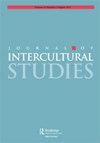Racism Data in Australia: A Review of Quantitative Studies and Directions for Future Research
IF 1
Q3 SOCIOLOGY
引用次数: 0
Abstract
There are growing public discussions about racism in Australia with renewed government commitment to addressing it. Robust evidence and high-quality data are important for informing anti-racism. However, current data have serious limitations that impact our knowledge about the nature, prevalence and impact of racism in Australia. To examine the state and limitations of data on racism in Australia, we conducted a stocktake review of quantitative racism data collected nationally until July 2022. This article reports on 32 survey-based research studies and six ongoing organisational reporting initiatives. We organise and classify existing data based on study designs and participant characteristics, as well as the settings, targets, perpetrators, responses to and effects of racism. We identify data gaps and recommend how they may be bridged. First, we recommend further analysis of existing, under-utilised data, to address outstanding questions about perpetrators’ demographics, priority localities, and the health and socio-economic outcomes of racism. Second, we recommend new data collection on emerging settings where racism occurs, under-explored forms, cohorts experiencing racism, and responses to racism. We propose this study as a foundation for a national anti-racism research agenda and data management plan in Australia, and as a template for stocktakes in other countries.澳大利亚种族主义数据:定量研究综述及未来研究方向
澳大利亚公众对种族主义的讨论越来越多,政府也再次承诺要解决这个问题。有力的证据和高质量的数据对于宣传反种族主义非常重要。然而,目前的数据有严重的局限性,影响了我们对澳大利亚种族主义的性质、流行程度和影响的认识。为了研究澳大利亚种族主义数据的现状和局限性,我们对截至2022年7月在全国范围内收集的定量种族主义数据进行了盘点审查。本文报告了32项基于调查的研究和6项正在进行的组织报告倡议。我们根据研究设计和参与者特征,以及环境、目标、肇事者、对种族主义的反应和影响,对现有数据进行组织和分类。我们确定数据差距,并建议如何弥合它们。首先,我们建议进一步分析现有的、未充分利用的数据,以解决有关犯罪者的人口统计、优先地区以及种族主义的健康和社会经济后果的悬而未决的问题。其次,我们建议收集新的数据,包括种族主义发生的新环境、未被探索的形式、经历种族主义的群体以及对种族主义的反应。我们建议将这项研究作为澳大利亚国家反种族主义研究议程和数据管理计划的基础,并作为其他国家盘点的模板。
本文章由计算机程序翻译,如有差异,请以英文原文为准。
求助全文
约1分钟内获得全文
求助全文
来源期刊

Journal of Intercultural Studies
SOCIOLOGY-
CiteScore
1.80
自引率
10.00%
发文量
67
期刊介绍:
Journal of Intercultural Studies showcases innovative scholarship about emerging cultural formations, intercultural negotiations and contemporary challenges to cultures and identities. It welcomes theoretically informed articles from diverse disciplines that contribute to the following discussions: -Reconceptualising notions of nationhood, citizenship and belonging; -Questioning theories of diaspora, transnationalism, hybridity and ‘border crossing’, and their contextualised applications; -Exploring the contemporary sociocultural formations of whiteness, ethnicity, racialization, postcolonialism and indigeneity -Examining how past and contemporary key scholars can inform current thinking on intercultural knowledge, multiculturalism, race and cultural identity. Journal of Intercultural Studies is an international, interdisciplinary journal that particularly encourages contributions from scholars in cultural studies, sociology, migration studies, literary studies, gender studies, anthropology, cultural geography, urban studies, race and ethnic studies.
 求助内容:
求助内容: 应助结果提醒方式:
应助结果提醒方式:


